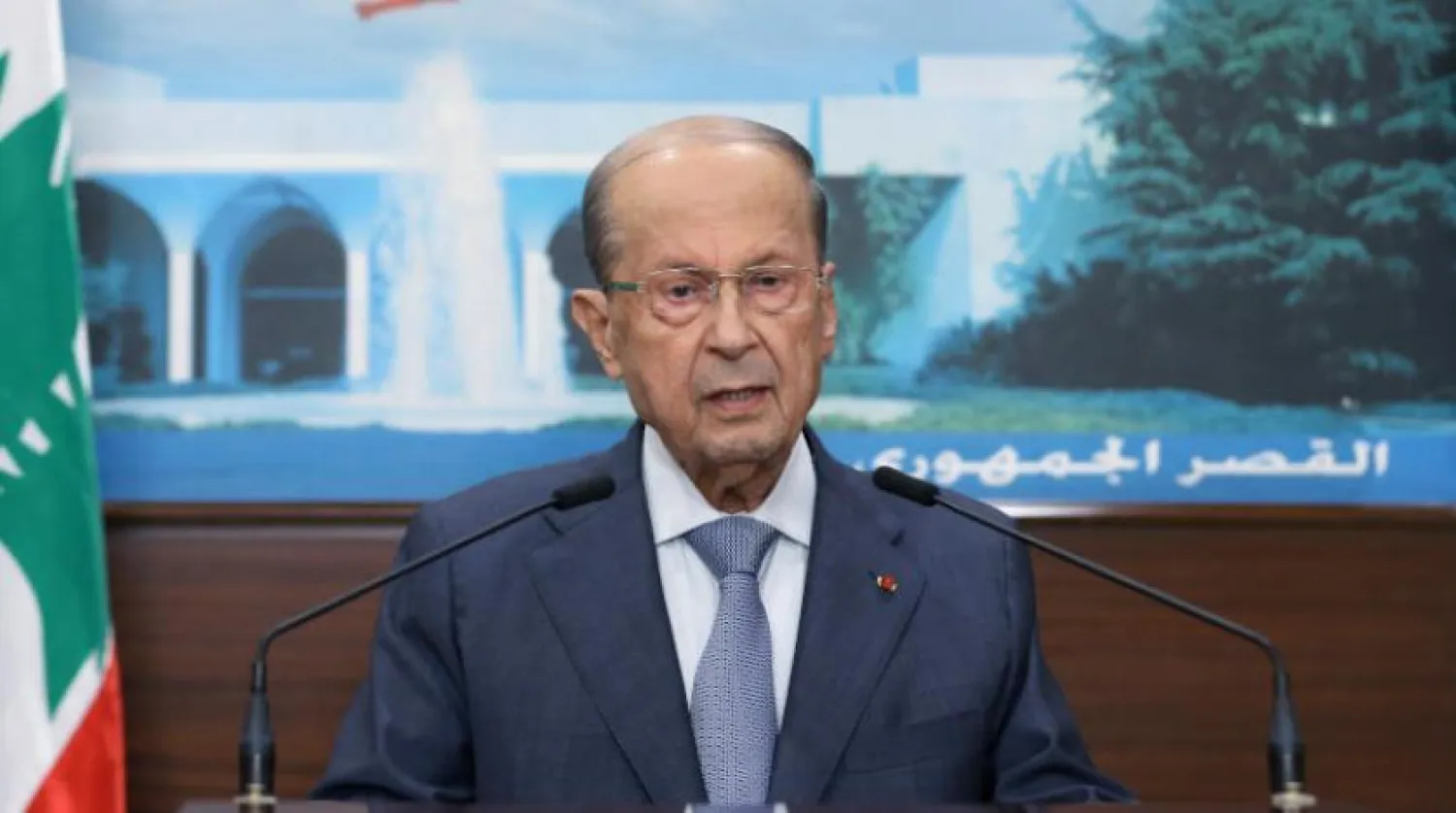Lebanese President Michel Aoun stressed on Wednesday that the current caretaker government is incapable of running the duties of the President if efforts fail to elect a new head of state on time.
The President affirmed that he will leave the Baabda Presidential Palace on October 31 at midnight when his term ends.
“At exactly, 12:00 am on October 31,” Aoun will leave for his home in Mount Lebanon’s Rabieh area, he told media outlets. At that point, he said he hopes to “hand over the (presidential) palace to a new President, if this is not possible, to an authentic government with complete specifications and powers."
In 2016, Aoun was elected President of Lebanon ending a vacuum at the top state post that lasted for 29 months. His term ends on October 31, after six years of rule full of crises.
However, Aoun said the current caretaker government of PM Najib Mikati is not qualified to run the tasks of the President if a new head of state is not formed by then, and that he might have another plan in that case.
“This government is not qualified to take over my powers after the end of my term. I believe it does not have the national legitimacy to replace the president, and therefore unless a president is elected or a government is formed before October 31, and if they insist on embarrassing me, there is a question mark regarding my next step and the decision I will take then,” stated Aoun.
On the delayed formation of the cabinet, Aoun said the obstruction is “deliberate so that the (caretaker) PM and his associates be in control of the country through a caretaker government that does not meet the conditions for replacing the head of state. If such a repulsive situation arises, I will not bow to it and I will face it.”
On June 23, Mikati was tasked to form a new cabinet, but his efforts have failed so far.
The President concluded by expressing “readiness to cooperate in order to form a government as soon as possible,” but also emphasized that he will never accept a government incapable of facing the responsibilities and challenges ahead.









